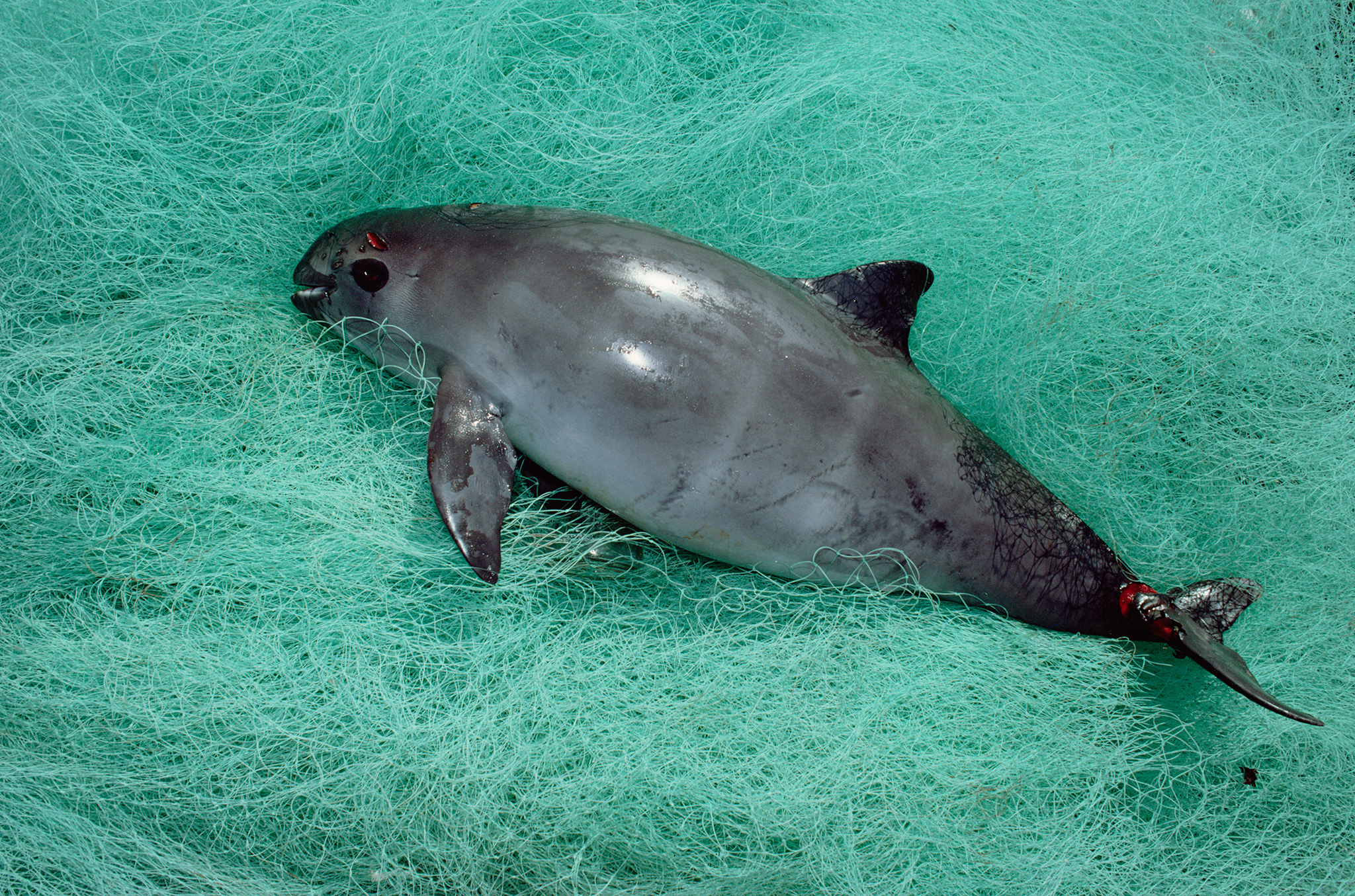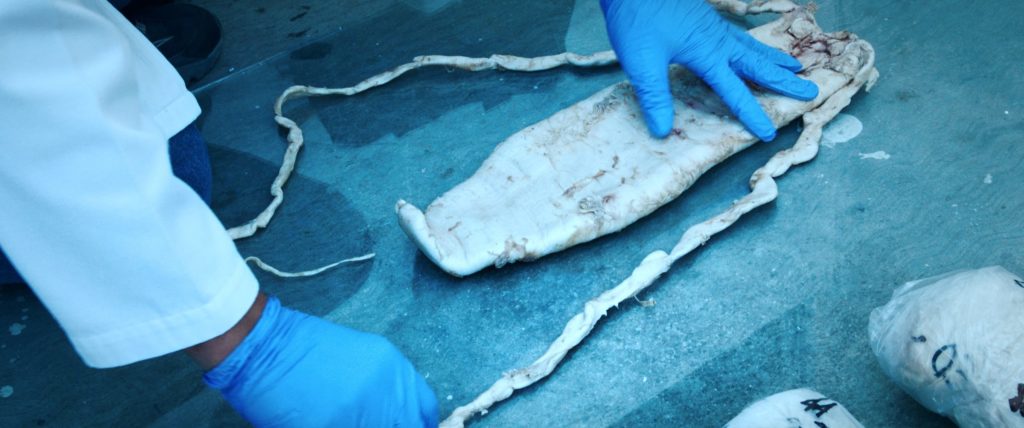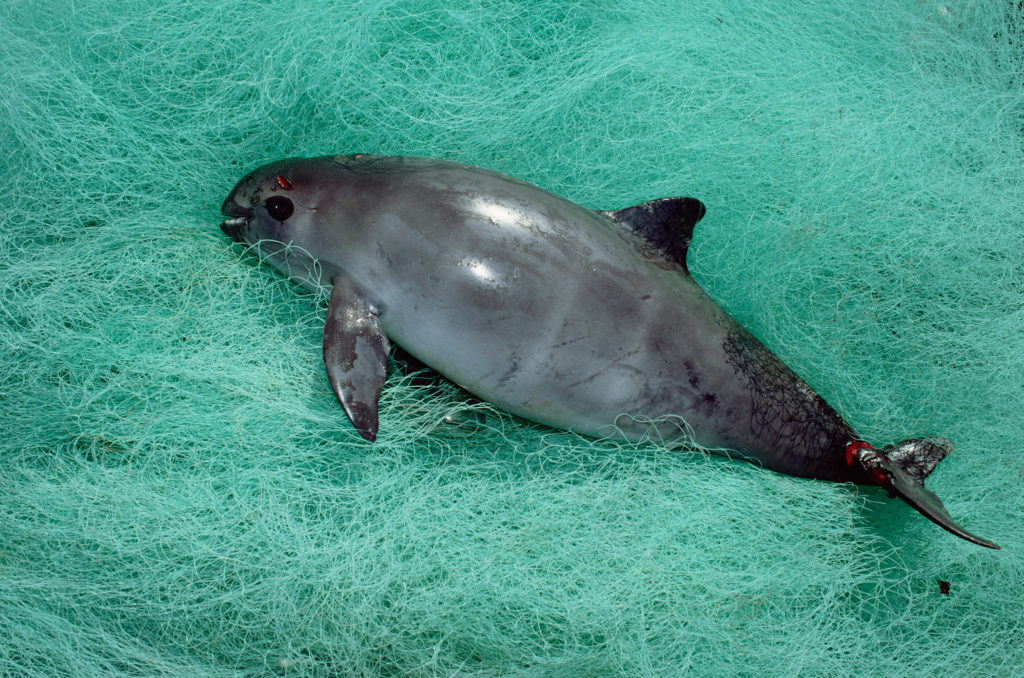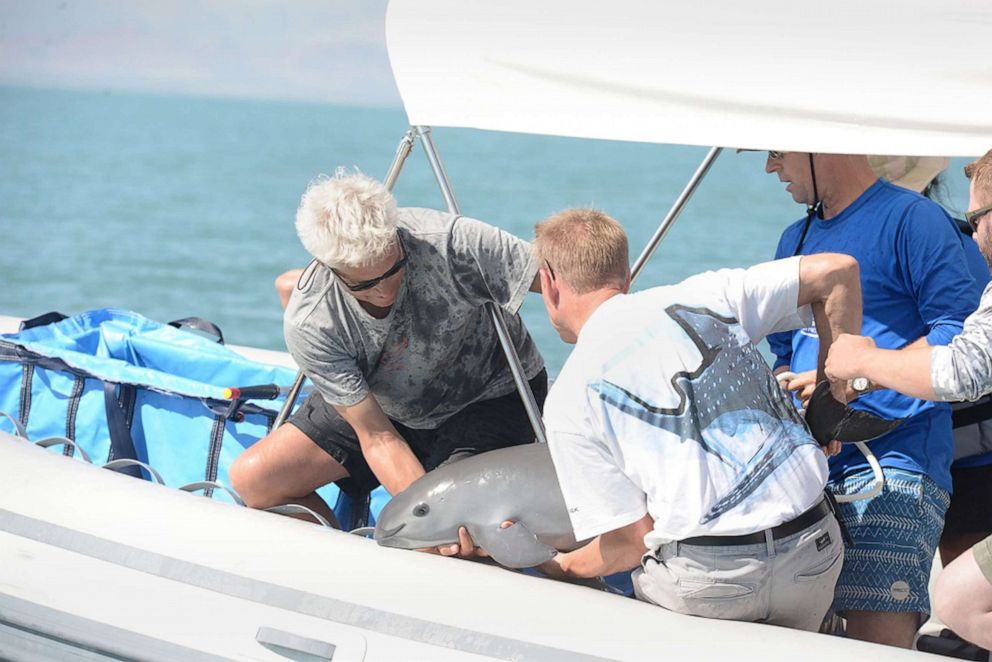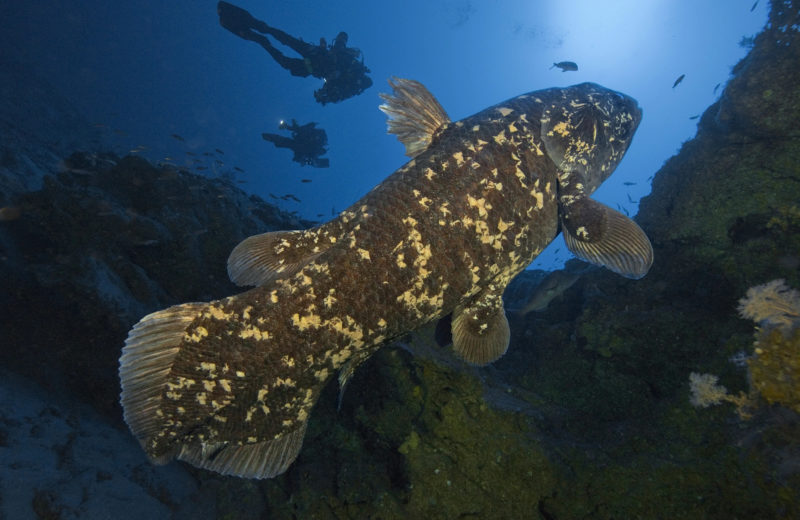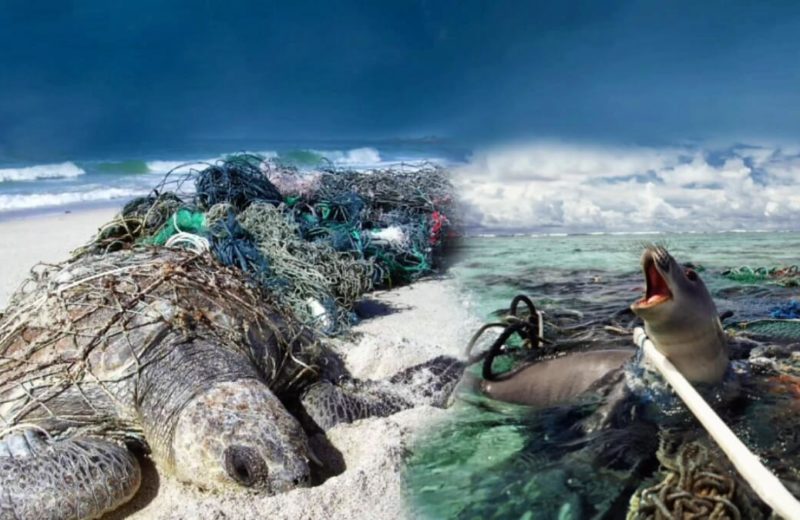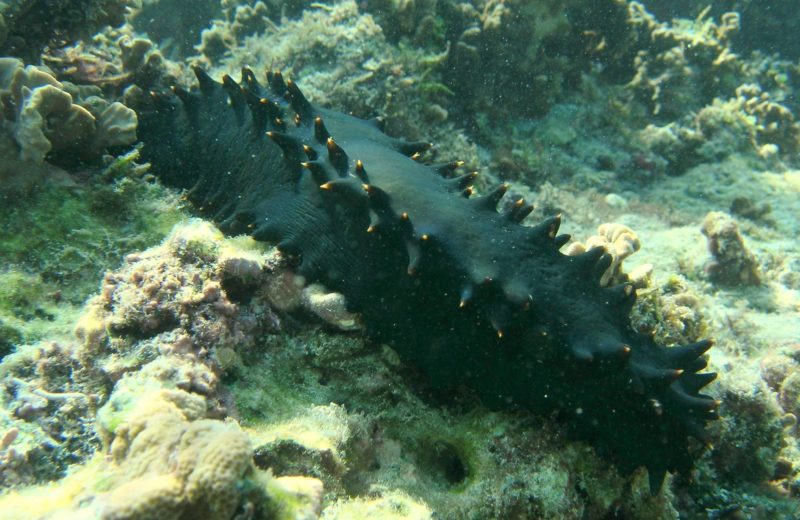The vaquita, the lowest and most endangered whale in the world, is almost extinct because of China’s demand for swim bladders from a gigantic Mexican fish called totoaba, also known as’ maws.’ With fishermen illegally fishing for totoabas using big gillnets, vaquitas have become the victim of their by-catch.
The Sea of Cortez is home to less than 15 vaquitas, encircled by miles of illegal gillnets and endangered by greed, violence and indifference.
The vaquita is the rarest marine mammal in the world and needs our protection. In Mexico’s Gulf of California, Vaquita is often captured and drowned in gillnets used by illegal fishing activities in marine protected areas. This little porpoise was found only in 1958, but it is on the verge of extinction.
To communicate and navigate the waters of the Gulf, Vaquitas use sonar. When seen, they used to be 8-10 individuals, either alone or in tiny groups of two or three. The vaquita is also the only species of porpoise found in warm waters like this. Vaquitas consume benthic and demersal fish such as silver weakfish, mimetic midshipman, striped weakfish, bronze-striped grunt, and bairdiella croaker. Eating squid and crustaceans are also known to them.
The vaquita is a porpoise species endemic to the Gulf of California’s northern part on the verge of extinction. The term vaquita is “little cow” in Spanish. Since 1996 it has been identified as being critically endangered. The population was estimated at 600 in 1997, below 100 in 2014, around 60 in 2015, around 30 in November 2016, and only 12-15 in March 2018, leading to the conclusion that the species will quickly be extinguished unless there are drastic measures.
An estimate published in March 2019 is that a maximum of 22 and a minimum of 6 vaquita porpoises remain, based on acoustic information collected in the summer of 2018.
The decline in population is mainly ascribed to the totoaba bycatch from illegal gillnet fishing, an endemic drum of similar size that is also critically endangered. The decrease in population happened despite the Mexican government’s investment of tens of millions of dollars in attempts to eliminate the bycatch.
A partial gillnet ban was introduced in May 2015 for two years, and its planned expiry at the end of May 2017 prompted a campaign to expand and strengthen it. Mexican President Enrique Peña Nieto announced an agreement on 7 June 2017 to make the gillnet ban permanent and reinforce enforcement. This effort will now also encompass the foundations of Mexican businessman Carlos Slim and American actor and environmental activist Leonardo DiCaprio, as well as the Mexican government and numerous environmental organizations.
Vaquitas, the smallest porpoise in the world, is up to five feet long and weighs up to 120 lbs. The distinctive facial markings of a black ring around each eye and black curved lips of the vaquita were likened to a smiling panda. On their dorsal (top) surface they are dark gray with pale gray sides and a white bottom with light gray markings. Newborns usually have darker coloring.
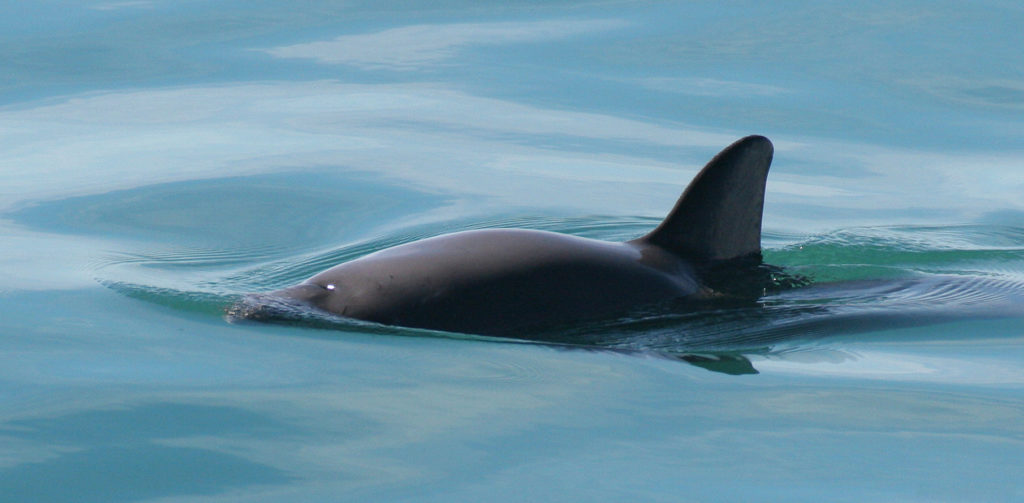
Vaquitas live only in the southern part of the California Gulf of Mexico. In addition to the vaquita, the Gulf of California has tremendous biological and economic significance. It promotes an exceptional variety of marine life including sharks, whales, marine turtles, and many reef fish species. Due to its ecological features, enormous biodiversity and the quantity of species that reside in this region, the Upper Gulf of California is regarded unique worldwide.
The primary drivers pushing vaquita to extinction are unsustainable and illegal fishing practices, especially owing to bycatch from illegal Totoaba fishing. Vaquitas accidentally capture and drown the porpoise with the much sought after totoaba fish and fishing nets.
Totoaba is treasured for their swim bladder on China’s black market, which is often used in soups to meet Chinese customers who think the organ has medicinal properties.
But now the fish of Totoaba is also critically endangered. They have been dangerously overfished and human activity has piled up on their plight, decreasing their natural habitat.
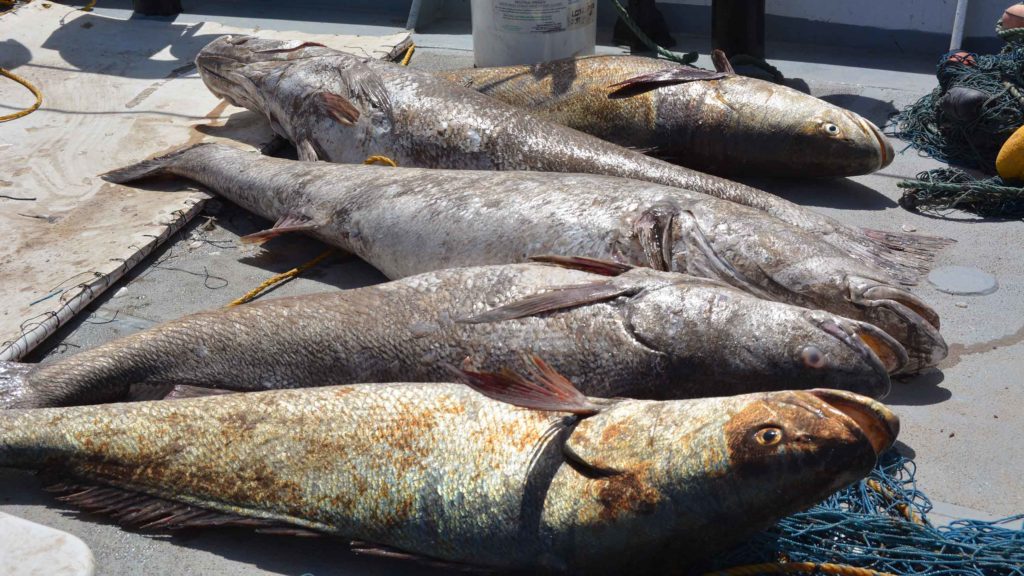
“They call it sea cocaine,” said Richard Ladkani, director of the latest National Geographic documentary “Sea of Shadows“.
The older the animal gets, the more important it is, according to conservationist Andrea Crosta, who said they filmed Totoabas selling for $100,000 each. Those aiming to catch the fish use miles-long gillnets, which in the process take the life of many other marine species, including Vaquita.
Sources : Wikipedia, latimes, abc news.



